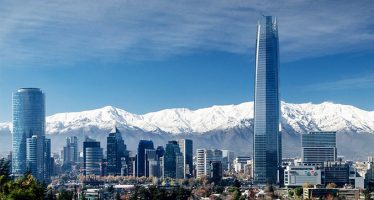World Bank Supports Greater Resilience to Climate Related Hazards in Mozambique
 The World Bank Board of Executive Directors approved today an International Development Association (IDA)* financing in the amount of US$50 million to support climate change related reforms agreed upon between the Government of Mozambique (GoM) and the World Bank under the Climate Change Development Policy Operation (DPO). This operation will improve the country’s resilience to effects of climate change through the implementation of reforms across several sectors of the economy.
The World Bank Board of Executive Directors approved today an International Development Association (IDA)* financing in the amount of US$50 million to support climate change related reforms agreed upon between the Government of Mozambique (GoM) and the World Bank under the Climate Change Development Policy Operation (DPO). This operation will improve the country’s resilience to effects of climate change through the implementation of reforms across several sectors of the economy.
Extreme climate related events such as cyclones and floods have devastating effects on agriculture, electricity generation, mining, and transport and communications almost every year in Mozambique. The country ranks third in Africa in terms of exposure to climate-related hazards and is the only country in Africa considered to be at high risk from each of the major climate hazards – droughts, floods and coastal cyclones. Economic losses average 1.1 percent of Gross Domestic Product (GDP) annually, having cost US$1.75 billion between 1980 and 2003. The country’s GDP fell following the 2000 floods from a forecast of 7 percent to 1.5 percent and the 2013 floods in the Limpopo Valley alone inflicted damages to affected settlements and infrastructure in the order of US$135 million and losses in crops estimated at US$112 million. The 2013 floods also resulted in at least 44 reported direct fatalities, 170,000 people evacuated in Gaza province alone, and a high prevalence of water-borne diseases and malaria amongst affected populations, most of whom were extremely poor. The floods severely damaged transport, irrigation, water supply, urban drainage, sanitation, and private assets, further disrupting private sector activities.
“This is the second in a series of three operations, and is based on the Bank’s engagement with the GoM in substantive policy dialogue on climate change.”
“Without changes in policies, climate change is expected to cause economic damages between US$2.3 to US$7.4 billion during the period 2003–2050,” said Mark Lundell, Country Director for Mozambique, Madagascar, Mauritius, Seychelles, and Comoros.“The policy actions supported under this operation aim to reduce the country’s vulnerability to climate risks and are in support of the implementation of the Government’s National Climate Change Adaptation and Mitigation Strategy.”
This DPO supports efforts to mainstream climate change at the national, district, and sectorial levels through the implementation of national policies for climate action, and by factoring in climate resilience in economic sectors. These include greater integration of climate resilient planning in agriculture, hydro-meteorological services, disaster risk management, human development (health and social protection), and infrastructure development such as energy, roads, and hydro-meteorology capabilities.
“Mozambique’s economic gains are significantly undermined as a result of recurrent weather related hazards,” said Ross Hughes, the Bank’s co-task team leader for the project. “For example, analysis shows that droughts and floods lead to substantial income and asset losses for farmers as well as food supply shortages and price spikes and a generalized decline in agricultural productivity. These climatic risk factors are often accompanied by disease outbreaks, mostly affecting the poor. Better policies can help address these risks – for example, by improving weather forecasting and early warning systems or by helping smallholder farmers to introduce climate resilient agricultural techniques. ”
This operation addresses the challenges to inclusive growth and poverty reduction and is in direct support of the GoM’s priorities set forth in its poverty reduction strategy (PARP) as well as its National Climate Change Adaptation and Mitigation Strategy. This is the second in a series of three operations, and is based on the Bank’s engagement with the GoM in substantive policy dialogue on climate change. It is complemented by other Bank-funded operations, including the Climate Change Technical Assistance Project co-financed by the UK Department for International Development, and by a number of investment pilots supported by the Pilot Program of Climate Resilience (PPCR) currently under implementation with support from a partnership comprising the World Bank, International Finance Corporation (IFC) and the African Development Bank.
*The World Bank’s International Development Association (IDA), established in 1960, helps the world’s poorest countries by providing grants and low to zero-interest loans for projects and programs that boost economic growth, reduce poverty, and improve poor people’s lives. IDA is one of the largest sources of assistance for the world’s 77 poorest countries, 39 of which are in Africa. Resources from IDA bring positive change for 2.8 billion people living on less than $2 a day. Since 1960, IDA has supported development work in 112 countries. Annual commitments have averaged about $18 billion over the last three years, with about 50 percent going to Africa. Source
You may have an interest in also reading…
Emmanuel Nnadozie, ACBF: Africa – BRICS Partnership Is Growing Rapidly
Emerging trends show that recently the BRICS group has become a major force in the global economic arena. The OECD
Africa Awakening: A Continent on the Rise
The time for Africa is now. The continent is rising to unexpected heights as wars have ended and humanitarian crises
The Time Is Now: Paradigm Shift Signals Opportunity
Few people realise that in 2013 a turning point was reached. In that year, emerging economies displaced developed markets as


















































































